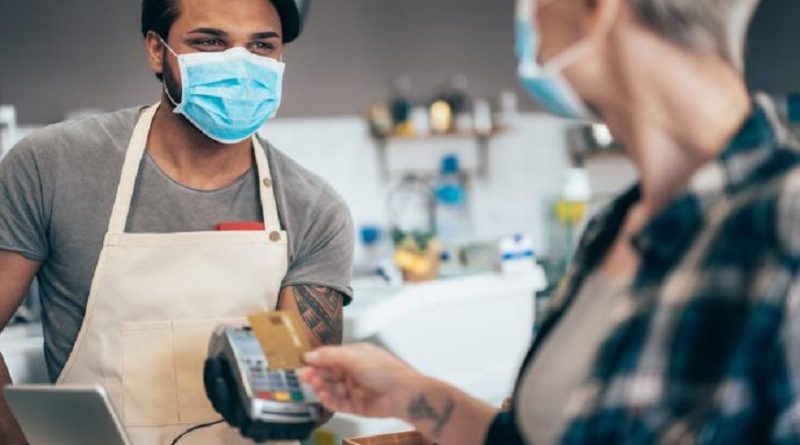How the Hospitality Industry is Adapting to Pandemic
The hospitality industry is navigating its way during the pandemic, with a new focus aimed at its next steps as the lockdown is slowly being lifted. Businesses within the industry are shifting their focus from making ends meet, to staying afloat, to what their businesses can do moving forward to bring in revenue.
Safety is vital, both for their customers and their employees, and ensuring a clean and hygienic environment will be of utmost importance.
With these things in mind, here are some key areas being adapted in the industry to accommodate the current conditions, as well as help drive in revenue:
Promoting Safety Practices
There are additional practices being enacted as a result of COVID-19 that are new standards for the hospitality industry. Installing hand sanitising stations at the main entrances of establishments, posting social distancing information throughout venues, offering digital menus, providing contactless payments, and switching to condiments upon request are just a number of newly offered practices that are being implemented as a result of the pandemic.
In addition, hospitality venues are providing training specific to COVID-19 operating regulations to their staff, with a focus on best practices towards implementing social distancing standards and explaining the health regulations in detail. Restaurant and Catering Australia (R&CA) are offering this specific detailed training to the industry.
Insurance Coverage
Protecting your overall business is critical. Every company needs to be properly insured to protect all that you have built. Comprehensive business insurance should be established to focus on each aspect of your company, to move it forward, and make it successful.
This type of coverage provides a safeguard for unexpected events. Additionally, a full comprehensive protection plan can provide Business Interruption cover and loss of income. Should you need to temporarily close your doors due to an event covered by your policy, thiscover will ensure you still have a business when it is over.
BizCover has access to a network of insurance companies and can quickly provide you free, multiple quotes so you can compare policies without the need to ring around or visit multiple websites. Within minutes you will have options to choose from and can obtain coverage immediately.
Obtaining several quotes from different insurance companies will allow you to see not only the different coverage levels but also the cost of each policy. BizCover can make this process easier and faster. For more information regarding the benefits of comprehensive business coverage, please CLICK HERE.
Providing Home Delivery Options
By adopting home delivery as new avenue to your customers, you can provide a new opportunity to service your customers and bring in revenue. This will not only help your business but also provides a chance for your customers to still patronize your business.
Some restaurants are offering drive up service to pick up orders and/or offering deliveries via their own staff. Large delivery companies such as UberEATS, Menulog, and Deliveroo, are offering incentives to restaurants to encourage them to utilise order deliveries. Incentives such as reducing their commissions on orders and providing incentive programs to their customers to encourage more sales on their platforms.
In addition to these large companies, there are many other smaller delivery companies popping up as new avenues to help smaller hospitality venues offer at home delivery to customers. From community social media groups to parcel delivery services, there are new options to provide increased customer service and drive revenue to your business.
Although many hospitality companies may continue offering home delivery and pick up into the future, fine dining may not continue this practice. Food delivery takes away from the fine dining experience.
Enacting Booking Fees / Prepayment
As restrictions are further lifted, social distancing measures still need to be enforced. As a result, many restaurants are opening but with limited capacity of seating. This presents additional hurdles towards driving in revenue.
Since the number of diners allowed at a time is reduced, securing bookings is very important. Unfortunately, the risk of no-shows is another obstacle to be faced.
One option to consider is to take credit card deposits for booking. This would encourage the customer to show up as planned and helps make sure the restaurant isn’t losing revenue for a reservation that didn’t show should a customer cancel at the last minute.
This practice is used in tourism by hotels and travel, in the form of prepayment, but may not be well received by customers, as it is not widely used.
Contact tracing
Contact tracing involves identifying people who have tested positive for COVID-19 (cases) and people who they came in contact with (contacts) and working with them to interrupt disease spread. This includes asking people with COVID-19 to isolate and their contacts to quarantine at home voluntarily.
Contract tracing presents a new set of challenges for the hospitality industry, as some states now require hospitality businesses to record guest details for the purposes of contact tracing.
Although there are software systems, such as Kounta, offering options for digital check-in for venues wanting to offer this process, contact tracing presents new potential issues for businesses. Customers may not be comfortable with this idea or want their privacy invaded by providing this type of personal information.
It also puts additional pressure on businesses, as the secure storage of this data, customer information, and the logistics of it all is a new hurdle to handle.
Yet this presents a new set of challenges for businesses, including logistics, consumer privacy and data storage.
Creating New andAlternative Revenue Streams
As social distancing measures have been implemented, businesses have had to creative as to how they can best use their space. Dine in facilities, for example, can only offer limited amount of seating for their customer at the same time.
Some businesses have modified their operations in an effort to maximise their operational space, as well as generate revenue. For example, shifting from a dine in restaurant only to an order pick up space allows for a restaurant to potentially service many more customers at a time, and provide meals to those customers that may not yet be comfortable dining at a restaurant right now.
By providing additional services or products to your customers, you can create potential new revenue streams to bring in business while navigating through this pandemic. As restrictions are lifted, you can evaluate if any of your new offerings are viable for the future.

